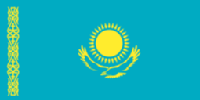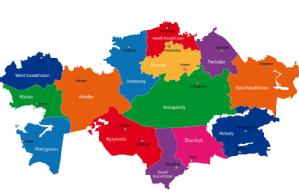Kazakhstan
Kazakhstan’s moves to reduce salt intake not in conflict with business interests (17/05/2023)
In Kazakhstan, where salt is an essential ingredient in many traditional dishes, doctors have raised concerns over the high levels of hypertension and strokes caused by excessive salt intake. Currently, cardiovascular disease is the main driver of premature deaths in the country resulting in more than 42 000 deaths each year – and high salt intake is a major contributing factor. [...] Read the full report
Sodium and potassium intakes in the Kazakhstan population estimated using 24‑h urinary excretion: evidence for national action.
Kathy Trieu, Feruza Ospanova, Shamil Tazhibayev, Jo Jewell, Joao Breda, Joseph Alvin Santos, Jacqui Webster.
European Journal of Nutrition 2021; 60: 1537-46. (https://doi.org/10.1007/s00394-020-02354-6)
Abstract
Purpose. There is strong scientific evidence for reducing sodium and increasing potassium intake to the recommended levels to lower blood pressure and cardiovascular risk, but consumption levels in Kazakhstan are unknown. This study sought to estimate mean sodium and potassium intake using 24-h urine samples and describe dietary knowledge and behavior among adults in Kazakhstan.
Methods. In two cross-sectional surveys, the same multi-stage cluster sampling method was used to randomly select participants aged 25–64 years from Almaty City in 2015 and Kyzylorda in 2016. Complete 24-h urine samples were available for 478 participants; 294 in Almaty City and 184 in Kyzylorda (response rates 86% and 54%, respectively) and were weighted for the age and sex distribution of the two regions.
Results. Weighted mean 24-h urinary sodium excretion was 6782 mg/day (17.2 g salt) (95% CI 6507–7058) in both regions combined, and not significantly different between the regions (P = 0.660). 99% of adults in the two regions combined consumed above the World Health Organization’s (WHO) recommended sodium maximum of 2000 mg/day; however, only 15% of adults perceived that they consumed excess sodium. Weighted mean 24-h urinary potassium excretion was 2271 mg/day (95% CI 2151–2391) for the regions combined.
Conclusion. Mean sodium consumption in Kazakhstan was more than triple the WHO’s recommended maximum, and mean potassium consumption was below the recommended minimum. National efforts to lower sodium intake and increase potassium intake are needed and would likely prevent ample premature deaths and disease burden.


Salt intake (g/day) in Kazakhstan (2015-6)
| Mean | 95% CI | |
| Almaty (n=294) | ||
| Men | 18.2 | 16.9 - 19.5 |
| Women | 15.7 | 14.7 - 16.6 |
| All | 17.1 | 16.3 - 17.9 |
| Kyzylorda (n=184) | ||
| Men | 18.2 | 16.3 - 20.0 |
| Women | 16.2 | 14.3 - 18.2 |
| All | 17.5 | 16.1 - 18.9 |
Method: 24h urine collection
